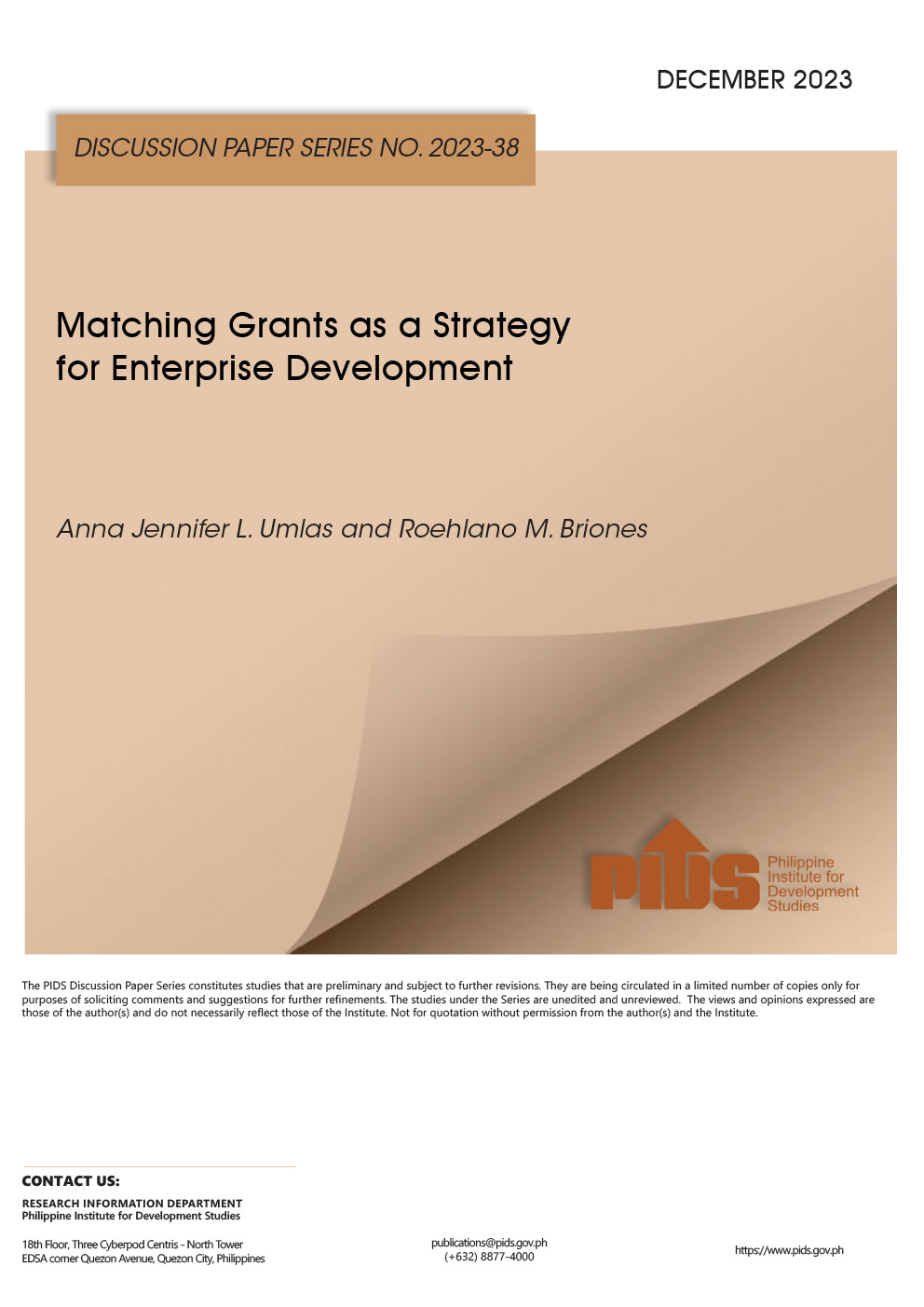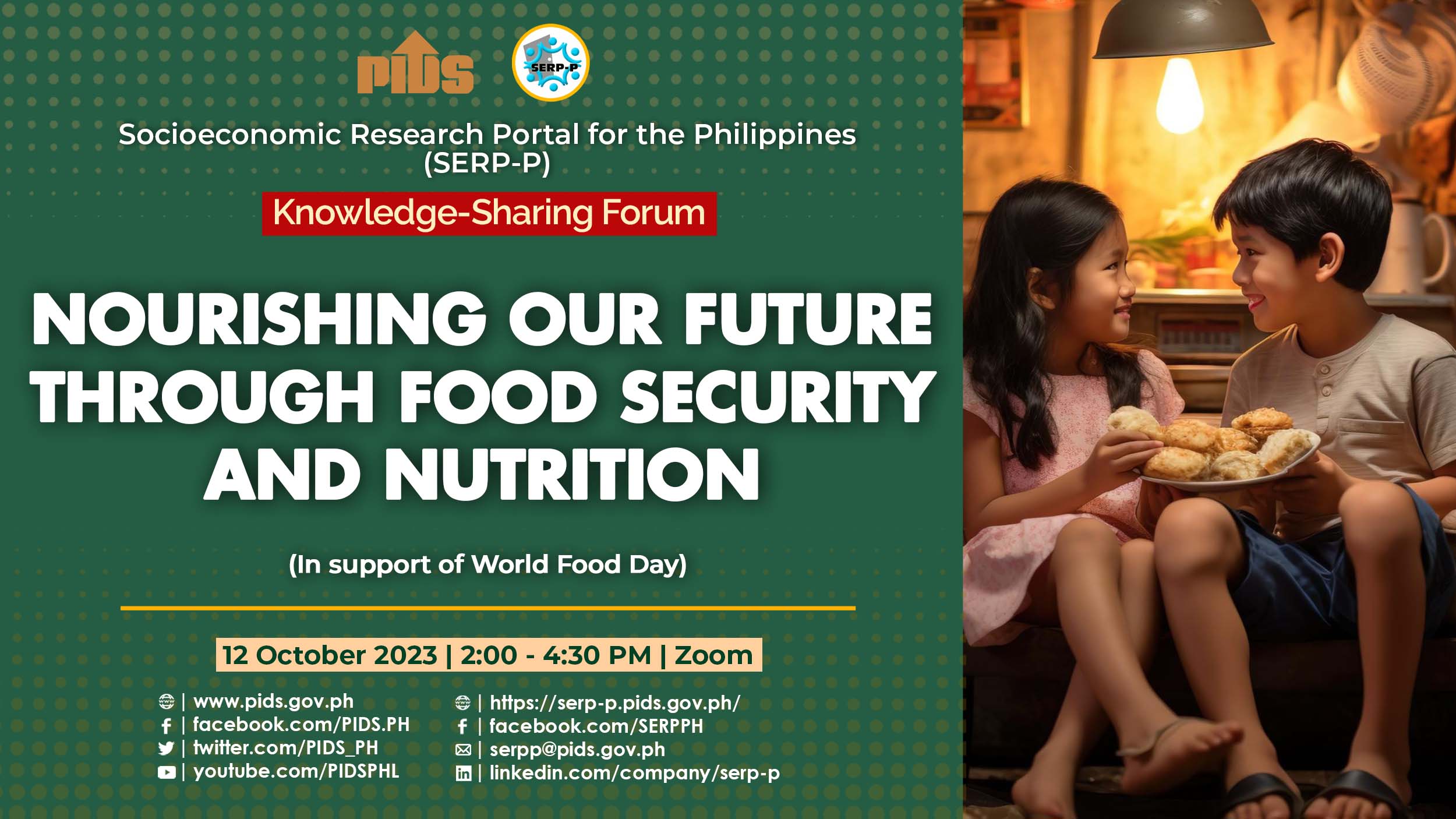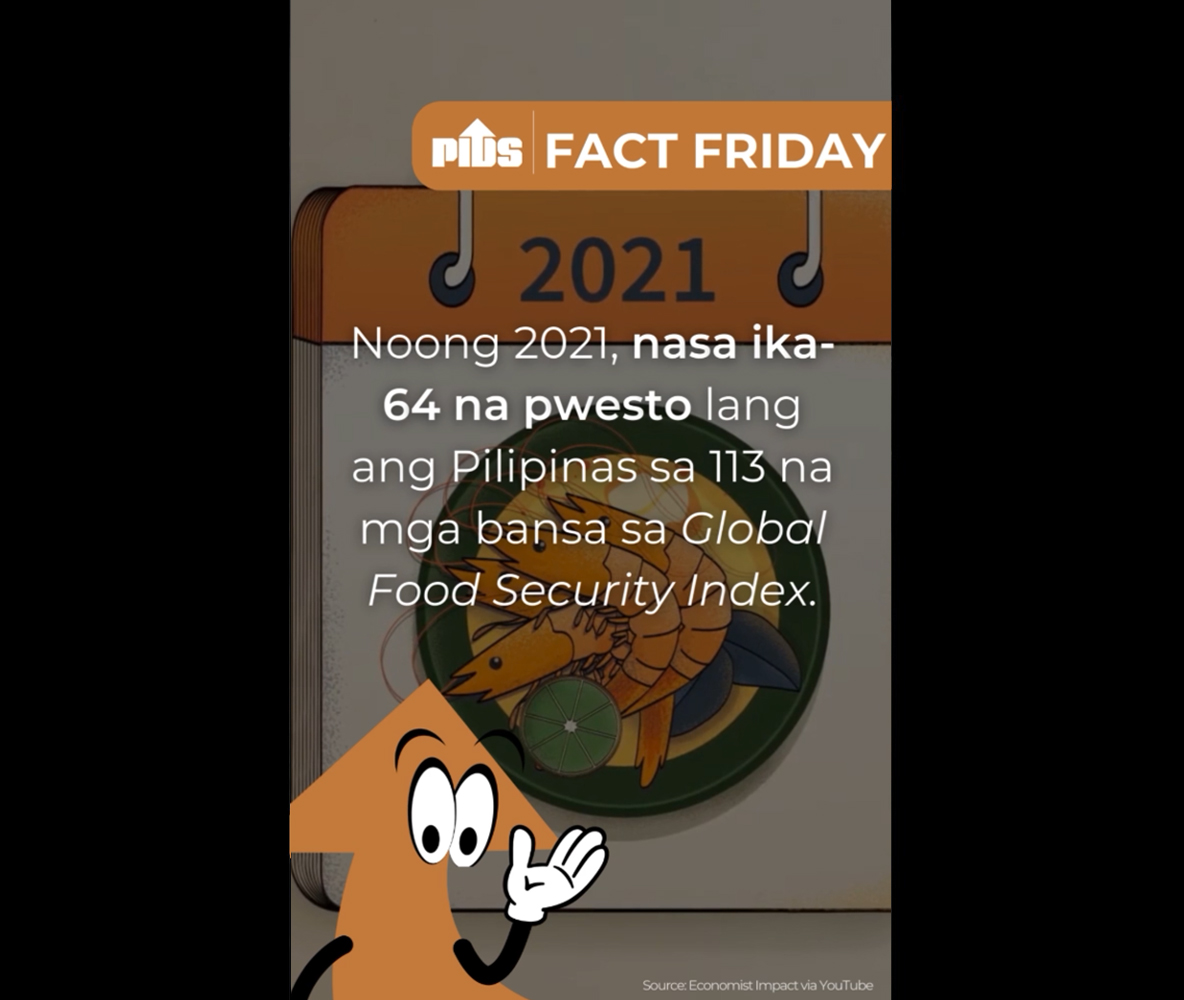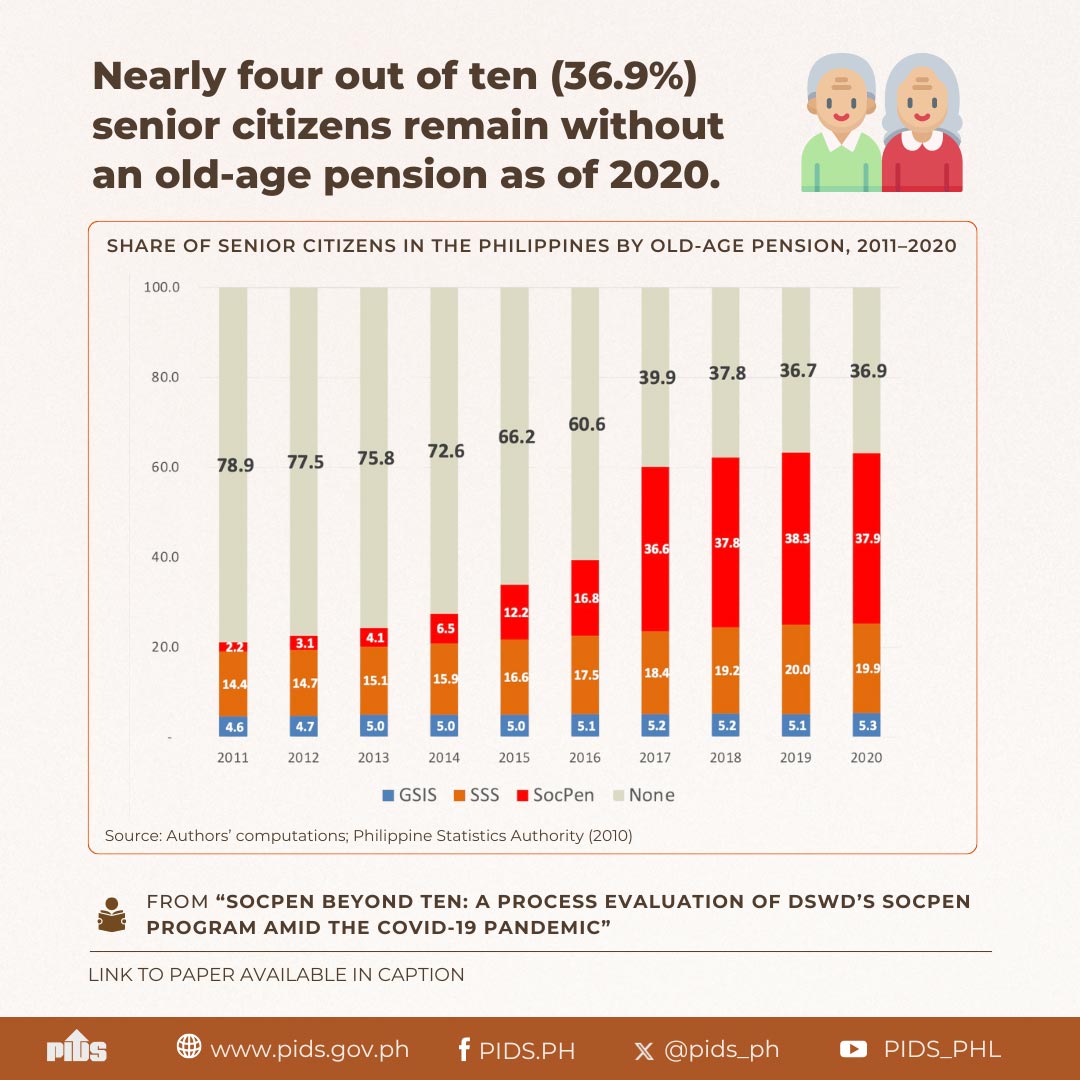A researcher from the state-owned Philippine Institute for Development Studies said that infrastructure and technology-based approaches are crucial in attaining food security in the country.
In a study presented at a PIDS public webinar, supervising research specialist Ivory Myka Galang said transport and food sector infrastructure affect people’s access to food.
“Infrastructure plays a big role in determining the cost of food. Food, especially perishables, is sensitive to temperature and proper handling. If the food is damaged during transport due to uneven roads or substandard storage facilities, the likelihood of food wastage increases. This will cause food prices also to increase,” Galang said in Filipino.
She added that the Philippines can still achieve food security if it uses a technology-enabled systems-based strategy based on a multisectoral national food and nutrition plan that prioritizes helping those who are most in need while also focusing on everyone else.
Galang emphasized that addressing food security is essential because it directly relates to the more important objective of nutrition security.
She added that obtaining food security would be possible if the availability of supplies, price and volume stability, physical and financial accessibility, and utilization (food intake, safety and quality) were ensured.
“Still, the country stands a chance at realizing food security as evidenced by the collaboration of government agencies and other sectors to provide short-term and long-term solutions,” Galang said.
She also pointed out that pressing issues causing food insecurity must be remedied.
These include raising agricultural yields to meet domestic food demands, addressing the issue of land conversion for residential and commercial development, assisting smallholder farmers in raising crop yields, lowering the costs associated with farming and food production, and enhancing the roads and transportation infrastructure.
DA’s food security plan
Galang said the cooperation between government organizations and other sectors to provide both immediate and long-term solutions indicate that the country can achieve food security.
The Department of Agriculture’s food security plan, according to Galang, encourages urban or home gardening and creates ready-to-eat healthy food.
DA has a number of programs and initiatives that are supported by various organizations and local government units, such as promoting urban or home gardening, creating prepackaged nutritious foods, running educational campaigns like the Pinggang Pinoy seal, and implementing school-based nutrition initiatives like supplementary feeding.











